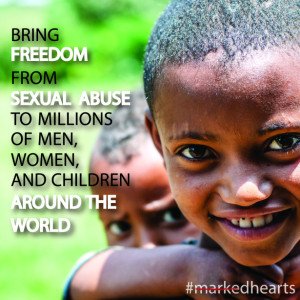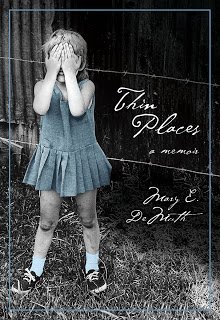We often say Bathsheba bathed on top of a roof. >>> The text and cultural studies indicate she was probably in an enclosed courtyard.We portray Bathsheba naked. >>> The Hebrew word is ambiguous. She could have been washing her hands or her feet only (while fully clothed).We view Bathsheba as a woman whose immodesty caused a king to stumble. >>> We should instead view David as a “peeping Tom.”We point out that Bathsheba “came to the palace.” >>> We fail to mention David sent messengers (plural) to fetch her.We tend to call the situation an affair. >>>The evidence from the text suggests it was rape.We bestow upon Bathsheba partial blame. >>> The biblical author placed the blame fully on King David.

Blog & Resources
Looking for my thoughts on everything from bioethics to movies? You came to the right place. And while you’re here, check out my free downloadable resources.
Sign up to be notified when new posts release.
You Can Help Bring Healing
 Authenticity Book House (ABH) has agreed to secure translation for my friend Mary DeMuth's book, Not Marked: Finding Hope and Healing after Sexual Abuse. Their plan is to translate the book into Spanish, Mandarin, and Marathi (India).Not only does ABH pay a translator on the ground in the targeted language group, giving him or her much-needed income, but they also foresee getting the book into the hands of sexually exploited people, either for free or at a nominal cost.This all costs money, so ABH is doing a crowdfunding campaign to bring in needed funds, 100% of which go directly to the translation projects.In several of the targeted language groups, it is taboo even to speak of abuse, and prosecution is rare. Victims feel violated, alone, and dirty, not realizing that they are worthy of healing, or that someone else understands. Not Marked has brought hope to many, opening the door to genuine healing. Maybe you can help?
Authenticity Book House (ABH) has agreed to secure translation for my friend Mary DeMuth's book, Not Marked: Finding Hope and Healing after Sexual Abuse. Their plan is to translate the book into Spanish, Mandarin, and Marathi (India).Not only does ABH pay a translator on the ground in the targeted language group, giving him or her much-needed income, but they also foresee getting the book into the hands of sexually exploited people, either for free or at a nominal cost.This all costs money, so ABH is doing a crowdfunding campaign to bring in needed funds, 100% of which go directly to the translation projects.In several of the targeted language groups, it is taboo even to speak of abuse, and prosecution is rare. Victims feel violated, alone, and dirty, not realizing that they are worthy of healing, or that someone else understands. Not Marked has brought hope to many, opening the door to genuine healing. Maybe you can help?
Bathsheba's Story: How I changed my perspective
Mary DeMuth: Not Marked
Happy birthday to my friend, Mary DeMuth! Today also marks the launch of her crowd-sourced book, Not Marked. Here's what Mary has to say about it:
I'm humbled and grateful to be here today. A huge thank youto Sandra for allowing me to share my heart.
A little background: I've sharedmysexual abuse story in the past few years, but I haven't always beenso open. Initially I kept it silent for a decade, then over-shared, then wentsilent another decade. The healing journey hasn't been easy, but it has beengood.
Not Marked (e-version)
Not Marked (print version)
The book's website
Part 1: Rape Culture 101
Rethinking the Bathsheba Story
Abuse and Healing
Give Your Opinion
Christianity Today International is conducting a groundbreaking national survey on attitudes about sex offenders in churches. Let them know what you think. Take the survey now and get a free download “Child Sexual Abuse Response Plan”: http://bit.ly/9MJC7E
Thin Places
 Every two minutes, someone in the U.S. is sexually assaulted and of the millions of sexual abuse and rape victims, 15 percent are under the age of 12, according to a 2007 study by the U.S. Department of Justice. My friend Mary DeMuth is among the millions of adults who are victims of childhood rape and are living with the emotional scars of the haunting abuse.
Every two minutes, someone in the U.S. is sexually assaulted and of the millions of sexual abuse and rape victims, 15 percent are under the age of 12, according to a 2007 study by the U.S. Department of Justice. My friend Mary DeMuth is among the millions of adults who are victims of childhood rape and are living with the emotional scars of the haunting abuse.
DeMuth shares her story in a new memoir, Thin Places. Repeatedly raped by two neighborhood boys, DeMuth details her disturbing childhood. Raised in a broken home, she lost her biological father when she was ten and was stripped of her innocence growing up in a drug-filled environment.
But Thin Places is about hope and healing more than it is about the traumatic events of DeMuth’s childhood. According to DeMuth, thin places are “snatches of time, moments really, when we sense God intersecting our world in tangible, unmistakable ways.” After she encountered the love of Jesus Christ at a Young Life camp, DeMuth’s life changed. God reassembled the pieces of her emotionally fragile self, which initiated true healing and peace.
“Folks may wonder why I’ve spent all this time looking back,” says DeMuth. “This is my way of...telling the stark truth on the page so others can be set free.”
DeMuth’s desire is to see readers set free from their family secrets. In light of that, she’s started a blog for readers to anonymously share their family secrets. Since the blog launched a little over a year ago, more than 200 survivors have emailed their family secrets for DeMuth to anonymously post. For more information, visit: http://blog.myfamilysecrets.org.
Learn more about Mary at http://marydemuth.com.




